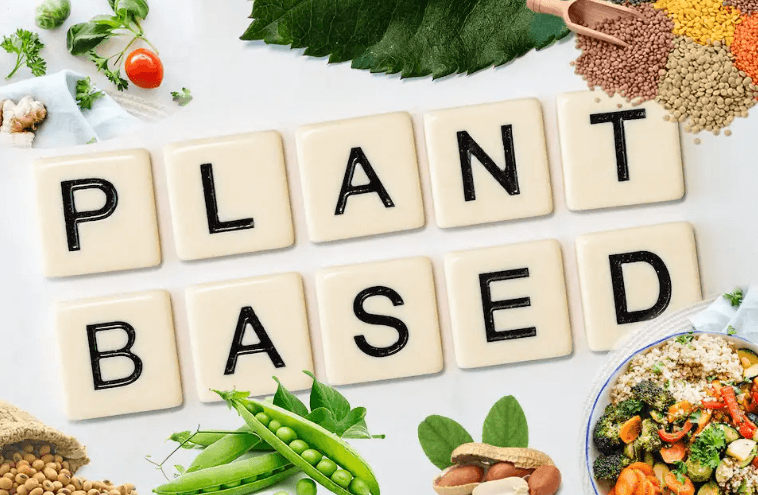wellhealthorganic.com/vegetarian-protein-sources

Looking for plant-based protein sources that fit your vegan or vegetarian lifestyle? You’ve come to the right place! Whether you’re an existing herbivore or simply looking to incorporate more meat-free meals into your diet, it’s important to know the best options available. In this blog post, we’ll be exploring four of the top vegan and vegetarian-friendly protein sources – tofu, tempeh, seitan, and wellhealthorganic.com/vegetarian-protein-sources. Not only are these foods packed with essential nutrients and amino acids, but they’re also versatile enough to use in a variety of dishes. Get ready to up your plant-based protein game with these delicious options!
Tofu
Made from soybeans that have been soaked, ground into a paste and then pressed to remove excess liquid, tofu is an excellent source of protein for vegans and vegetarians alike.
Not only is tofu rich in protein, but it’s also low in calories and fat. One serving of tofu contains about 10 grams of protein per 100 grams – that’s almost the same amount as chicken breast! Plus, it’s incredibly versatile. Tofu can be used in sweet or savory dishes like stir-fries, smoothies, desserts and more info wellhealthorganic.com/vegetarian-protein-sources.
Another great thing about tofu is how easy it is to prepare. From marinating to baking or frying to grilling there are countless ways you can get creative with this delicious ingredient. Try blending silken tofu into your next smoothie for a creamy texture or using extra firm tofu as a meat substitute in your favorite recipes–the possibilities are endless!
If you’re new to eating plant-based foods or haven’t tried cooking with tofu yet give it a try! You might just find that it becomes one of your go-to ingredients for adding protein-rich meals into your diet without sacrificing taste or nutrition.
Tempeh
Tempeh is another plant-based protein source that has gained popularity in the vegan and vegetarian communities. It originated from Indonesia and is made by fermenting cooked soybeans with a mold, creating a dense cake-like texture.
One of the benefits of tempeh is its high protein content, boasting around 19 grams per 100-gram serving. It’s also rich in other essential nutrients like fiber, calcium, iron, and magnesium.
Tempeh has a nutty and earthy flavor profile that can be enhanced by marinating or seasoning it before cooking. It’s versatile enough to be used as a meat substitute in various dishes such as stir-fries, burgers, tacos, salads, and wellhealthorganic.com/vegetarian-protein-sources.
Another advantage of tempeh over tofu is that it doesn’t contain any anti-nutrients that can interfere with nutrient absorption in the body. Additionally, its fermentation process increases its digestibility and promotes gut health.
Incorporating tempeh into your diet can provide numerous health benefits while still satisfying your taste buds with its unique flavor profile.
Seitan
Seitan, also known as wheat meat or wheat protein, is an excellent vegan and vegetarian-friendly source of protein. Made from gluten, the main protein found in wheat, seitan has a chewy texture that can mimic meat when flavored and prepared correctly.
One of the benefits of seitan is its versatility. It can be seasoned with various herbs and spices to create different flavors and textures. For example, it can be marinated in soy sauce for a savory taste or rubbed with smoked paprika for a smoky flavor.
Seitan also contains high amounts of protein per serving compared to other plant-based sources such as beans or lentils. In fact, just one ounce of seitan contains approximately 21 grams of protein, wellhealthorganic.com/vegetarian-protein-sources! This makes it an excellent choice for vegans and vegetarians looking to increase their daily intake.
Another perk of seitan is that it’s low in fat but still provides essential amino acids necessary for muscle growth and repair. Plus, it’s easy to find at most health food stores or even make at home using vital wheat gluten flour.
If you’re looking for a flavorful and nutrient-dense alternative to meat-based proteins, give seitan a try! With its versatility in flavoring options combined with its high amount of protein per serving – this plant-based option may become your new go-to source for all things savory.
Quinoa
it is a versatile and nutritious grain that is perfect for vegans and vegetarians. Quinoa can be used in many different ways, including salads, soups, stir-fries, and even as a substitute for rice or pasta, wellhealthorganic.com/vegetarian-protein-sources.
In addition to its high protein content, quinoa is also rich in fiber, iron, magnesium, and other important nutrients and wellhealthorganic.com/vegetarian-protein-sources. Its nutty flavor makes it a delicious addition to any meal.
There are plenty of vegan and vegetarian-friendly protein sources available that can help you meet your nutritional needs without relying on animal products. Whether you choose tofu or tempeh for their soy-based benefits or seitan and quinoa for their wheat-based goodness – incorporating these foods into your diet will provide the necessary fuel to keep your body healthy and strong!




